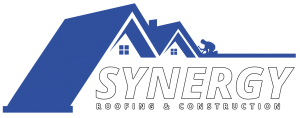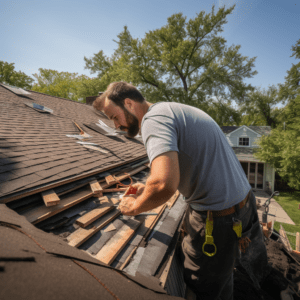Roof inspections serve as a vital safeguard in preserving the structural integrity and financial value of residential properties. By conducting routine examinations, potential issues can be identified early on, preventing extensive damage and costly repairs. Professional roof inspectors possess specialized knowledge and expertise to provide comprehensive evaluations, thereby enabling homeowners to make informed decisions regarding necessary repairs or replacements. While homeowners may perform visual inspections themselves, prioritizing safety is crucial and engaging professional services for more thorough assessments is recommended. The cost of roof inspections varies based on factors such as property size and location, averaging between $200 and $600. Repairs range from minor fixes costing around $400 to $2,000 to complete roof replacements that can exceed $9,000. Roof inspections encompass a comprehensive evaluation of the roof’s condition, including examination of roofing components, detection of damage, assessment of structural integrity, inspection of gutters, flashing systems, ventilation systems etc., ultimately ensuring optimal energy efficiency and property value maintenance.
The Importance of Regular Roof Inspections
Preventing costly roof damage and extending the lifespan of a roof are crucial considerations in home maintenance. Regular roof inspections play a vital role in achieving these goals by identifying potential issues before they escalate into major problems. By addressing small issues promptly, homeowners can avoid expensive repairs or even complete roof replacements in the future, ultimately ensuring the longevity and structural integrity of their homes.
Preventing Costly Roof Damage
To mitigate the risk of incurring expensive repairs, it is essential to prioritize regular roof inspections. Preventing costly roof damage is crucial for maintaining the structural integrity of a building and avoiding potential issues such as leaks, mold growth, and compromised insulation. Roof inspections near me can help identify any existing or potential problems early on, allowing for prompt repairs or maintenance. This proactive approach can prevent minor issues from escalating into major damages that require extensive and costly repairs or even complete roof replacements. By investing in regular roof inspections, property owners can ensure the longevity and durability of their roofs while saving significant costs in the long run.
| Benefits of Regular Roof Inspections |
|---|
| Early identification of issues |
| Prevention of costly repairs |
| Maintenance of structural integrity |
| Preservation of insulation |
Extending Roof Lifespan
Extending the lifespan of a roof requires regular maintenance and proactive measures. Professional roof inspections are crucial in this regard, as they ensure comprehensive and thorough evaluations of the roof’s condition. Reliable roofers in New Orleans offer trusted roof repair services that include top-rated roofing companies with skilled professionals who conduct quality and thorough roof inspections. These professionals have the expertise to identify potential issues and provide recommendations for repairs or replacements. By investing in professional roof inspections, homeowners can address small issues promptly, preventing them from becoming major problems that may require costly repairs or even complete replacements. Regularly scheduling these inspections is essential to maintaining the structural integrity of the roof and ensuring its longevity.
Benefits of Professional Roof Inspections
This discussion will focus on the importance of reliable assessment by experts and how it can be a cost-effective preventive measure in the context of professional roof inspections. Reliable assessment by experts ensures a thorough and accurate evaluation of the roof’s condition, as professionals have the knowledge, experience, and specialized tools to identify hidden issues. By detecting potential problems early on, professional roof inspections can prevent costly repairs or replacements in the future, making them a cost-effective preventive measure for homeowners.
Reliable Assessment by Experts
Professional roof inspections provide a reliable assessment of the condition and potential issues of a roof, ensuring accurate information for homeowners. These inspections are conducted by experts in the field who have the knowledge and experience to identify hidden problems that may not be apparent to untrained eyes. They use specialized tools and techniques to thoroughly examine every component of the roof, including shingles, flashing, fasteners, and ventilation systems. The findings from these inspections can help homeowners make informed decisions about whether they need roof repair services or if it’s time for a roof replacement. From residential roof repair to commercial roof replacement, specialized professionals offer high-quality roof installations that ensure the longevity and structural integrity of the property.
| Keywords | Description |
|---|---|
| Roof Repair Services | Professional service for repairing damaged roofs |
| Roof Replacement Specialists | Experts in replacing old or damaged roofs |
| Affordable Roof Repair | Cost-effective solutions for fixing roofing issues |
| Expert Roof Replacement | Skilled professionals offering top-notch replacements |
| Residential Roof Repair | Repairs specifically tailored to residential properties |
| Commercial Roof Replacement | Replacements designed for commercial buildings |
| Specialized Roof Replacements | Customized replacements based on specific needs |
| High-Quality Roof Installations | Installation services known for their superior quality |
Cost-Effective Preventive Measure
Implementing regular roof inspections can be an economical way to prevent potential issues and avoid costly repairs or replacements in the future. Roof inspections provide an opportunity to identify any damage or deterioration in the roofing system, allowing for timely repairs or maintenance. This proactive approach helps homeowners save money by addressing small problems before they escalate into larger, more expensive ones.
Experienced roofers such as the ones at All Ways Roofing can conduct thorough inspections and offer valuable insights into the condition of the roof. They have expertise in various types of roofs, including slate roof installation, standing seam metal roofs, and unique roofing designs. We can provide custom roof installations and customizable roof options based on individual needs.
Professional roofers often offer free roof repair estimates to help homeowners understand the potential costs involved. We may also offer financing options for necessary repairs or replacements. By taking advantage of these services, homeowners can ensure their roofs remain in good condition while minimizing financial burdens.
DIY Roof Inspections: What You Need to Know
This discussion will focus on the subtopic of DIY roof inspections, specifically addressing safety precautions and common signs of roof damage that can be observed during these inspections. Safety precautions are crucial when conducting DIY roof inspections to prevent accidents or injuries. Additionally, being aware of common signs of roof damage such as missing or damaged shingles, leaks, cracks, and water damage can help homeowners identify potential issues early on and take appropriate action.
Safety Precautions for DIY Roof Inspections
When conducting DIY roof inspections, it is important to prioritize safety by using proper equipment and following recommended precautions. Safety should always be the top concern when working at heights. To ensure a safe inspection, homeowners should use appropriate safety equipment such as harnesses and sturdy ladders. It is also essential to follow recommended guidelines and procedures for accessing the roof and moving around it safely. While performing DIY inspections, homeowners may come across various roofing designs, including innovative and modern concepts. They might also encounter unique solutions such as eco-friendly choices and durable replacements. However, it is crucial to note that for a more comprehensive evaluation and accurate assessment of these creative roofing concepts, it is advisable to consult with professional roof inspectors or the best roofing contractors in the area.
Common Signs of Roof Damage During DIY Inspections
During DIY inspections, signs of roof damage can be identified by looking for indicators such as missing or damaged shingles, leaks, cracks, water stains on ceilings or walls, and sagging or unevenness in the roof structure. Missing or damaged shingles are a common sign of roof damage and can indicate potential leaks. Leaks can manifest as water dripping from the ceiling or walls, resulting in stains. Cracks in the roofing material may also be indicative of underlying issues. Sagging or unevenness in the roof structure may suggest structural damage that needs to be addressed. It is important to note that while these signs may be visible during DIY inspections, it is recommended to consult with professionals for a more comprehensive evaluation and accurate assessment of the extent of the roof damage.
Understanding the Cost of Roof Inspections and Repairs
This discussion will focus on the average inspection costs and factors that can affect repair costs in relation to roof inspections. Understanding the financial implications of roof inspections is important for homeowners to make informed decisions about maintaining the condition of their roofs. By examining the average inspection costs and identifying factors that can impact repair expenses, homeowners can better understand the potential financial commitments associated with roof maintenance.
Average Inspection Costs
The average cost of a roof inspection can vary depending on factors such as the location and size of the home. On average, roof inspections can range from $200 to $600. The cost of repairs will depend on the extent of the damage and the materials used. Minor repairs can cost around $400 to $2,000, while a complete roof replacement can range from $9,000 or more, depending on various factors. It is important to note that these costs are estimates and can vary depending on individual circumstances and regional pricing differences. Additionally, it is recommended to hire a professional roof inspector for a thorough evaluation rather than attempting DIY inspections, especially for complex issues or larger homes.
Factors Affecting Repair Costs
Factors such as the extent of damage and the materials used significantly impact the costs associated with roof repairs. The extent of damage refers to the severity and scope of the issues present in a roof, including missing or damaged shingles, leaks, cracks, and structural integrity problems. The more extensive the damage, the higher the repair costs are likely to be. Additionally, different roofing materials have varying costs and requirements for repairs. For example, repairing a roof made of slate or tile may be more expensive than repairing one made of asphalt shingles. Factors such as labor costs and local market conditions can also influence repair costs. It is important for homeowners to assess these factors when considering roof repairs to ensure they have an accurate understanding of potential expenses.
What to Expect During a Roof Inspection
The roof inspection process plays a crucial role in maintaining the integrity of a home and preventing potential problems. It involves a thorough assessment of the roof’s condition, including checking for signs of damage such as missing or damaged shingles, leaks, cracks, and other sources of water damage. Common roof issues that may be identified during inspections include deteriorating shingles, improper installation, poor ventilation, and structural concerns.
Roof Inspection Process
During a roof inspection process, various components of the roof are thoroughly examined to assess their condition and identify any signs of damage or potential issues. The inspection typically includes an assessment of the roofing materials, such as shingles or tiles, to check for any missing or damaged pieces. Inspectors also examine the flashing around chimneys, vents, and skylights to ensure they are properly sealed and not causing any leaks. The gutters and downspouts are inspected for clogs or damage that could lead to water buildup on the roof. Other areas that may be examined include the attic ventilation system, insulation, and any potential structural issues. A comprehensive roof inspection aims to identify any problems that may compromise the integrity of the roof and require repairs or maintenance.
Common Roof Issues
Common issues found during a comprehensive roof inspection include missing or damaged shingles, deteriorated flashing, clogged gutters, and inadequate attic ventilation. These issues can have significant implications for the overall performance and lifespan of the roof. Missing or damaged shingles can leave the underlying layers vulnerable to water infiltration and structural damage. Deteriorated flashing, which is used to seal joints and prevent water penetration, can lead to leaks and further damage if not addressed. Clogged gutters can cause water to back up onto the roof, potentially leading to moisture problems and deterioration of roofing materials. Inadequate attic ventilation can result in excessive heat buildup, which can accelerate the aging process of the roof and contribute to higher energy costs. It is crucial for homeowners to address these common issues promptly through proper maintenance and repairs to ensure the longevity and functionality of their roofs.
When to Schedule a Roof Inspection
Roof inspections play a crucial role in home maintenance, as they help identify potential issues before they become major problems. The frequency of roof inspections depends on various factors such as the age of the roof, the climate, and any recent severe weather events. Signs indicating that a roof inspection is needed include leaks from the ceiling, experiencing severe weather conditions like hurricanes or snowstorms, planning to sell the home, waiving a home inspection when buying a property, or receiving a request from the insurance company for an inspection.
Frequency of Roof Inspections
Regular roof inspections are recommended to ensure the ongoing maintenance and longevity of the roofing system. The frequency of these inspections is dependent on several factors, including the age of the roof, the climate in which it is located, and any recent severe weather events. Generally, it is recommended to schedule a roof inspection at least once a year. This allows for early detection and timely repair of any potential issues that may arise. In addition, regular inspections can help identify wear and tear on the roof over time, allowing homeowners to take proactive measures to extend its lifespan. By enlisting the help of a licensed roofing inspector, homeowners can receive professional recommendations for maintenance or repairs that will help ensure the continued functionality and durability of their roofing system.
Signs Indicating a Roof Inspection Is Needed
Signs indicating the need for a roof inspection include water stains on ceilings, visible leaks, missing or damaged shingles, and severe weather conditions. Water stains on ceilings are a clear indication of a potential leak in the roof. These stains can appear as discolored patches or dark spots on the ceiling surface. Visible leaks, such as dripping water or wet spots, also indicate a problem with the roof that requires immediate attention. Missing or damaged shingles can leave the underlying layers of the roof vulnerable to water damage and should be addressed promptly. Severe weather conditions, such as strong winds, heavy rainstorms, or hailstorms, can cause significant damage to the roof and may necessitate a thorough inspection to assess any potential issues.
The Role of Roof Inspections in Home Buying and Selling
Roof inspections play a critical role in home sales, insurance, and financing requirements. When buying or selling a home, a thorough roof inspection is often required to assess the condition of the roof and determine if any repairs or replacements are necessary. Insurance companies may also require a roof inspection to ensure that the property is insurable and to determine the coverage and premium rates. Lenders often require a roof inspection as part of the financing process to protect their investment in the property.
Critical for Home Sales
An essential aspect of the home sales process is ensuring that a thorough roof inspection is conducted to assess the condition and potential issues of the roof. This is crucial because the roof plays a vital role in protecting the entire structure from weather elements and other potential damages. A comprehensive roof inspection can identify any existing damage or signs of wear and tear that may affect the value of the property. It allows potential buyers to have a clear understanding of the condition of the roof before making a purchase decision. By conducting a detailed assessment, sellers can address any necessary repairs or replacements, giving buyers confidence in their investment. Including a thorough roof inspection as part of the home sales process is fundamental for both sellers and buyers to ensure transparency and peace of mind regarding one of the most critical components of a property.
Insurance and Financing Requirements
Insurance companies and financial institutions often require a comprehensive roof inspection as part of the approval process for homeowner’s insurance or mortgage financing. This requirement is in place to ensure that the property being insured or financed has a sound and well-maintained roof. The purpose of this inspection is to assess the condition of the roof, identify any existing damage, and evaluate its overall integrity. Insurance companies and financial institutions want to minimize their risk by ensuring that they are not insuring or financing a property with a roof that may be prone to leaks, structural issues, or other significant problems. By conducting these inspections, they can determine if any repairs or replacements are needed before proceeding with insurance coverage or mortgage financing.
What a Roof Inspector Looks for During an Inspection
This discussion will focus on two key points: common roof issues and the importance of regular inspections. Common roof issues can include damage to shingles, leaks, cracks, and problems with gutters or ventilation systems. Regular inspections are essential for identifying these issues early on and preventing costly repairs or replacements in the future. By addressing these common roof issues through regular inspections, homeowners can ensure the longevity and structural integrity of their roofs.
Common Roof Issues
Common roof issues can include missing or damaged shingles, leaks, cracks, and potential sources of water damage. Missing or damaged shingles can leave the underlying roofing materials exposed to the elements, leading to further deterioration. Leaks are a common problem that can result from various issues such as damaged flashing or compromised roofing materials. Cracks in the roof can occur due to aging or structural movement and can allow moisture to seep into the home. These cracks need to be addressed promptly to prevent further damage. Potential sources of water damage include clogged gutters, improper drainage systems, and inadequate ventilation. It is important to address these common roof issues in a timely manner to maintain the integrity and longevity of the roof structure.
Importance of Regular Inspections
Roof inspections are an essential part of maintaining the structural integrity and longevity of a home’s roof. By identifying potential issues before they become major problems, regular inspections can prevent costly repairs and replacements in the future. A well-maintained roof can extend the lifespan of the entire home, providing peace of mind for homeowners. Roof inspections typically cover a thorough assessment of the roof’s condition, including an examination of shingles, leaks, cracks, and other sources of water damage. They may also evaluate the roof’s structural integrity, as well as inspect gutters, flashing, and ventilation systems. While homeowners can perform simple visual inspections themselves from a safe location using proper safety equipment, hiring a professional roof inspector ensures a more accurate evaluation with specialized tools and techniques. Professional inspections come with detailed reports and recommendations for repairs or replacements.
How Often Should You Have Your Roof Inspected
The frequency of roof inspections and the benefits of regular inspections are important considerations for homeowners. Regular roof inspections can help identify potential issues before they become major problems, allowing for timely repairs or maintenance. Additionally, regular inspections can extend the lifespan of a roof and prevent costly repairs or replacements in the future.
Frequency of Roof Inspections
When considering the frequency of roof inspections, it is important to schedule them at least once a year for optimal maintenance and identification of potential issues. Regular roof inspections allow homeowners to detect any signs of damage or deterioration early on, preventing minor problems from escalating into major ones. By conducting inspections annually, homeowners can address small repairs promptly, extending the lifespan of their roofs and avoiding costly replacements in the future. Regular roof inspections help ensure the structural integrity of the entire home by identifying any weaknesses or vulnerabilities in the roofing system. Overall, scheduling roof inspections on a yearly basis is crucial for maintaining a well-maintained and secure roof that protects the home from external elements.
Benefits of Regular Inspections
Regular roof inspections provide homeowners with the opportunity to identify and address potential issues before they escalate into costly repairs or replacements. By conducting regular inspections, homeowners can ensure that their roofs are in good condition and functioning properly. This not only helps to maintain the structural integrity of the home but also extends the lifespan of the entire property. A well-maintained roof is essential for protecting against weather elements, preventing water damage, and maintaining energy efficiency. Regular inspections can provide peace of mind for homeowners by ensuring that any problems are identified early on and can be promptly addressed. Overall, investing in regular roof inspections is a proactive approach to home maintenance that can save homeowners significant time and money in the long run.
| Benefits of Regular Inspections |
|---|
| Identify potential issues before they escalate |
| Avoid costly repairs or replacements |
| Extend the lifespan of the roof |
Extending the Lifespan of Your Roof With Regular Inspections
Preventing costly repairs and maximizing the lifespan of a roof are crucial considerations for homeowners. Regular roof inspections play a significant role in achieving these objectives by identifying potential issues early on before they escalate into major problems. By addressing small issues promptly, homeowners can avoid expensive repairs or even complete roof replacements, ultimately extending the lifespan of their roofs.
Preventing Costly Repairs
To avoid incurring significant expenses, it is crucial to address minor issues identified during roof inspections promptly. Neglecting these minor issues can lead to more extensive damage and costly repairs in the future. By addressing problems early on, homeowners can prevent further deterioration of the roof and potential structural damage to their homes. Promptly fixing leaks, replacing damaged shingles, or repairing flashing can help maintain the integrity of the entire roofing system. This proactive approach not only saves money but also ensures a longer lifespan for the roof. Taking care of small repairs as soon as they are detected during inspections can provide peace of mind for homeowners and protect their investment in their property.
| Benefits of Addressing Minor Issues Promptly | Emotional Response |
|---|---|
| Cost savings | Relief |
| Protection against further damage | Security |
| Longer lifespan for the roof | Satisfaction |
Maximizing Roof Lifespan
Maximizing the lifespan of a roof can be achieved through proactive maintenance and timely repairs. Regular inspections play a vital role in this process, as they allow for the early detection of potential issues before they escalate into major problems. By identifying and addressing small damages promptly, homeowners can prevent further deterioration and extend the overall lifespan of their roofs. Proactive maintenance includes regular cleaning of gutters to prevent water buildup and damage, ensuring proper ventilation to reduce moisture accumulation, and inspecting flashing and seals for any signs of wear or deterioration. Timely repairs should be carried out whenever necessary to address leaks, cracks, or other forms of damage that could compromise the integrity of the roof. By implementing these measures consistently, homeowners can maximize the durability and longevity of their roofs.




